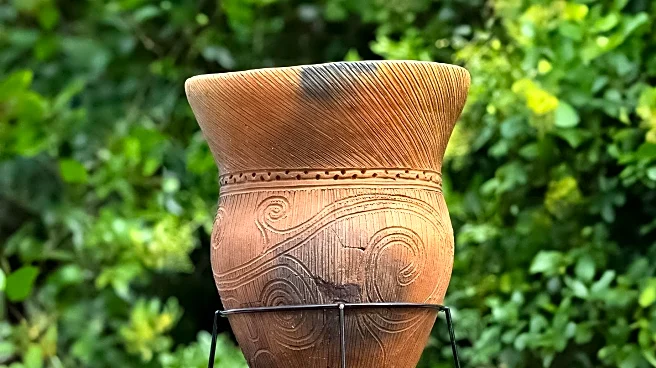What's Happening?
A New Orleans family uncovered a marble tablet with Latin inscriptions while cleaning their backyard. The tablet, identified as a 1,900-year-old Roman grave marker, belonged to Sextus Congenius Verus, a sailor in the imperial navy. The artifact had been missing from an Italian museum for decades. Tulane University anthropologist Daniella Santoro and classical archaeologist Susann Lusnia confirmed the tablet's origins and its historical significance. The FBI is coordinating with Italian authorities for its repatriation.
Why It's Important?
The discovery highlights the unexpected presence of ancient artifacts in modern settings, raising questions about historical preservation and the movement of cultural items across borders. The involvement of the FBI and Italian authorities underscores the importance of international cooperation in cultural heritage protection. This event may prompt further investigations into other missing artifacts and enhance awareness of historical preservation efforts.
What's Next?
The FBI's discussions with Italian authorities could lead to the tablet's return to Italy, potentially setting a precedent for similar cases. The discovery may encourage local and international museums to review their collections for missing items. It could also inspire further archaeological interest in the New Orleans area, potentially uncovering more historical artifacts.
Beyond the Headlines
The tablet's journey from Italy to New Orleans raises ethical questions about the ownership and trade of cultural artifacts. It highlights the need for stricter regulations and monitoring of artifact movements to prevent illegal trade. The story also reflects on the cultural significance of grave markers in Roman society, emphasizing the importance of legacy and remembrance.











